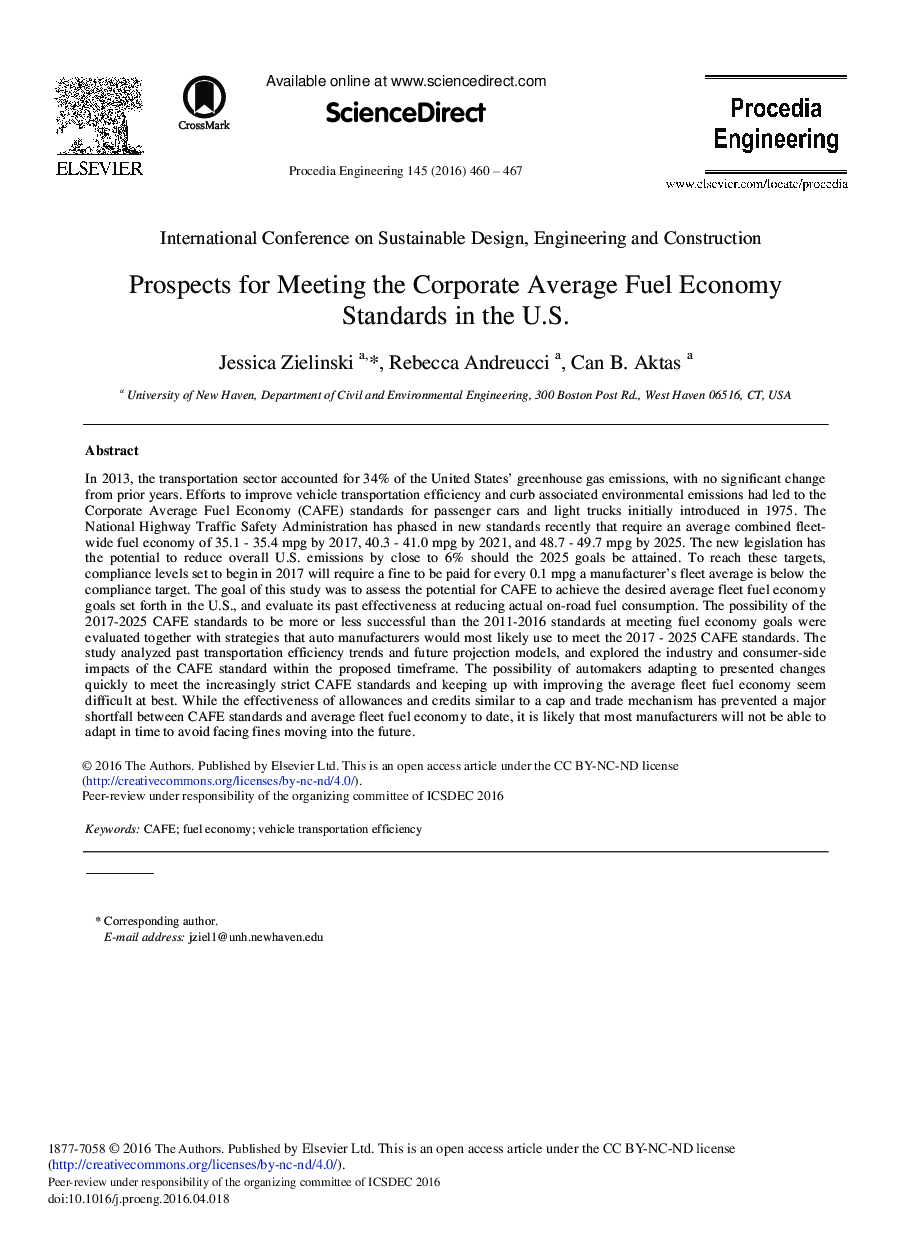| کد مقاله | کد نشریه | سال انتشار | مقاله انگلیسی | نسخه تمام متن |
|---|---|---|---|---|
| 853701 | 1470681 | 2016 | 8 صفحه PDF | دانلود رایگان |
In 2013, the transportation sector accounted for 34% of the United States’ greenhouse gas emissions, with no significant change from prior years. Efforts to improve vehicle transportation efficiency and curb associated environmental emissions had led to the Corporate Average Fuel Economy (CAFE) standards for passenger cars and light trucks initially introduced in 1975. The National Highway Traffic Safety Administration has phased in new standards recently that require an average combined fleet-wide fuel economy of 35.1 - 35.4 mpg by 2017, 40.3 - 41.0 mpg by 2021, and 48.7 - 49.7 mpg by 2025. The new legislation has the potential to reduce overall U.S. emissions by close to 6% should the 2025 goals be attained. To reach these targets, compliance levels set to begin in 2017 will require a fine to be paid for every 0.1 mpg a manufacturer's fleet average is below the compliance target. The goal of this study was to assess the potential for CAFE to achieve the desired average fleet fuel economy goals set forth in the U.S., and evaluate its past effectiveness at reducing actual on-road fuel consumption. The possibility of the 2017-2025 CAFE standards to be more or less successful than the 2011-2016 standards at meeting fuel economy goals were evaluated together with strategies that auto manufacturers would most likely use to meet the 2017 - 2025 CAFE standards. The study analyzed past transportation efficiency trends and future projection models, and explored the industry and consumer-side impacts of the CAFE standard within the proposed timeframe. The possibility of automakers adapting to presented changes quickly to meet the increasingly strict CAFE standards and keeping up with improving the average fleet fuel economy seem difficult at best. While the effectiveness of allowances and credits similar to a cap and trade mechanism has prevented a major shortfall between CAFE standards and average fleet fuel economy to date, it is likely that most manufacturers will not be able to adapt in time to avoid facing fines moving into the future.
Journal: Procedia Engineering - Volume 145, 2016, Pages 460–467
